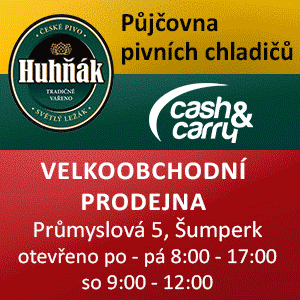
Výborný zážitek pro ty, kdo mají rádi blues, slibuje koncert americké zpěvačky Wandy Johnson. Podle zasvěcených recenzí jde o perfektní představitelku tohoto nezaměnitelného stylu. Její vystoupení si můžete vychutnat v Bounty Rock Cafe od 20 hodin.
Wanda se narodila v Jižní Karolíně ve velké rodině (má osm sester) s hudební tradicí. Sama však začala zpívat až ve druhé polovině 90. let a debutové album “Call Me Miss Wanda” vydala teprve v roce 2003. O tři roky později vydala druhé album "Natural Resource". Toto album vzbudilo velký zájem a zajistilo Wandě Johnson pozvánku k účasti na jedné z nejvýznamnějších událostí světa blues, Pocono Blues festivalu. V hodnocení vydaném v Texas Blues Magazine se mimo jiné hovoří o největším překvapení celého festivalu. Wanda Johnson předvedla skvělé originální písně a pravidelně častovala posluchače úsměvem, který by rozzářil i tu nejtemnější jeskyni. Obdobně se o Wandě hovoří jako o "novém hlasu i duši blues z Jižní Karolíny”.
Docela z jiného ranku je další večerní program ArtUm centra, který potěší především milovníky tuzemského folkloru. Slavnostní večer k 15. výročí Folklórního souboru KRAJINA z Olomouce bude mít podobu vyprávění, doprovázeného cimbálovou muzikou Frgál. Oslava se koná dnes a začíná v 19 hodin. ArtUm centrum najdete v Sokolské ulici číslo 7
A ještě něco pro rodiče s dětmi – Divadlo Tramtarie zve na 15. Hodinu všechny na Pirátskou pohádku Vladislava Kracíka. Anička a Eliška jsou úplně obyčejné malé holky, které si po škole hrají na dětském hřišti na piráty. Jenom jako samozřejmě. Jenomže potom najdou v pískovišti zakopaný vzkaz v lahvi a v něm mapu úplně opravdického ztraceného pirátského pokladu, a pak se teprve začnou dít věci, ze kterých vám vypadne oko z důlku… V hlavní roli humor, nekonečná dětská fantazie a také touha zažít opravdové dobrodružství. Pohádka je vhodná pro děti od tří let.









Komentáře
kraken5af44k24fwzohe6fvqfgxfsee4lgydb3ayzkfhlzqhuwlo33ad.onion
canada discount drug
buying stromectol
stromectol medication
canadian pharmacy king
kraken2trfqodidvlh4aa337cpzfrhdlfldhve5nf7njhumwr7instad
kraken14.at
kraken13.at
kraken onion
london drugs canada
Stránky